- by Niall Cullen
Creating Permaculture Gardens at Student Castle, Brighton
- by Niall Cullen
This site uses cookies for better user experience and analytics.

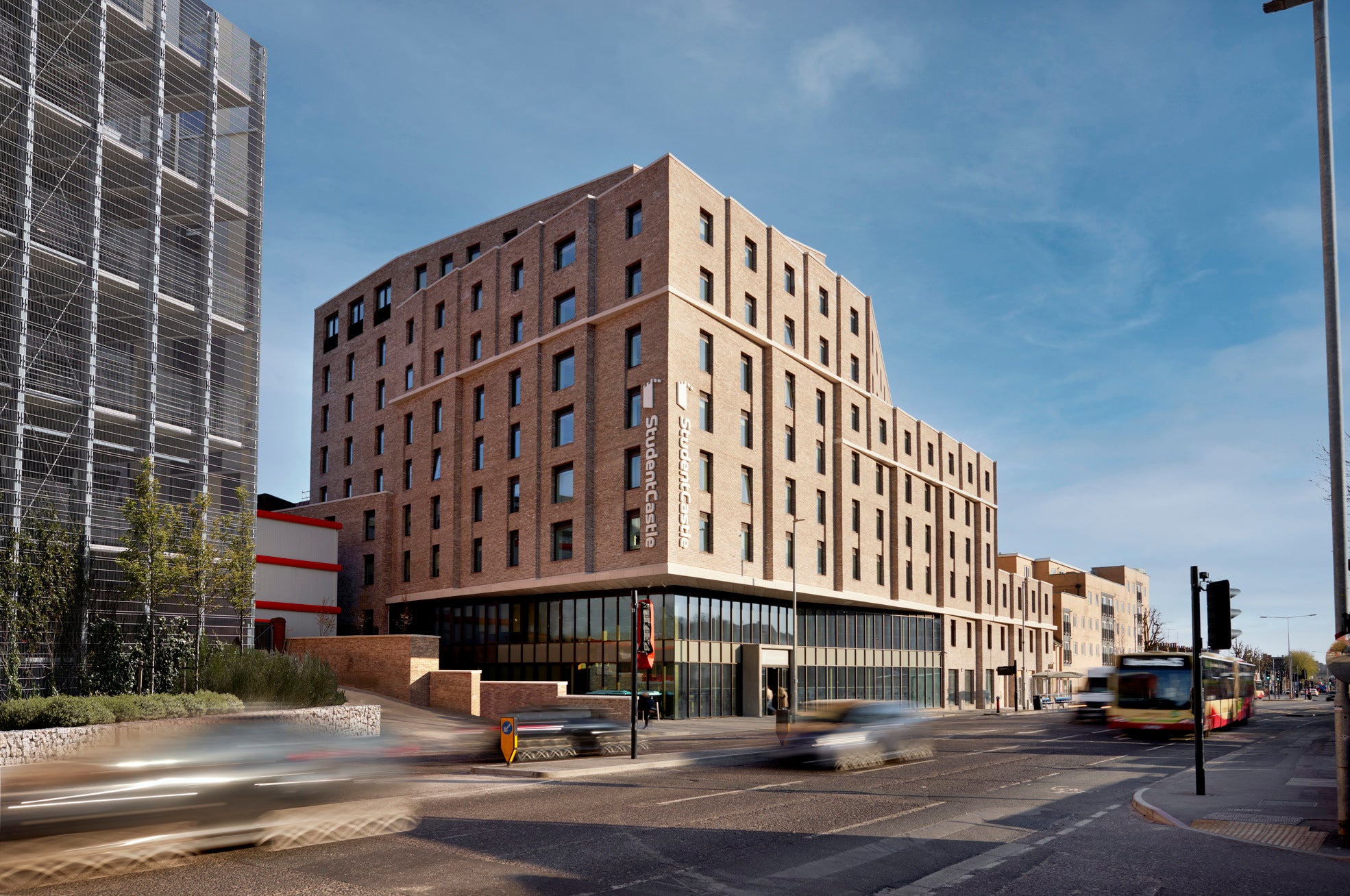
Student Castle, a premier provider of student accommodation in the UK, has partnered with us to create three innovative rooftop permaculture gardens at their Brighton location. This project aims to enhance student well-being while promoting sustainability, contributing to broader environmental, social, and governance (ESG) goals. The transformed terraces now offer functional environments that support both the students and the local ecosystem, integrating permaculture practices to benefit pollinators, insects, and essential soil microorganisms crucial for carbon sequestration.
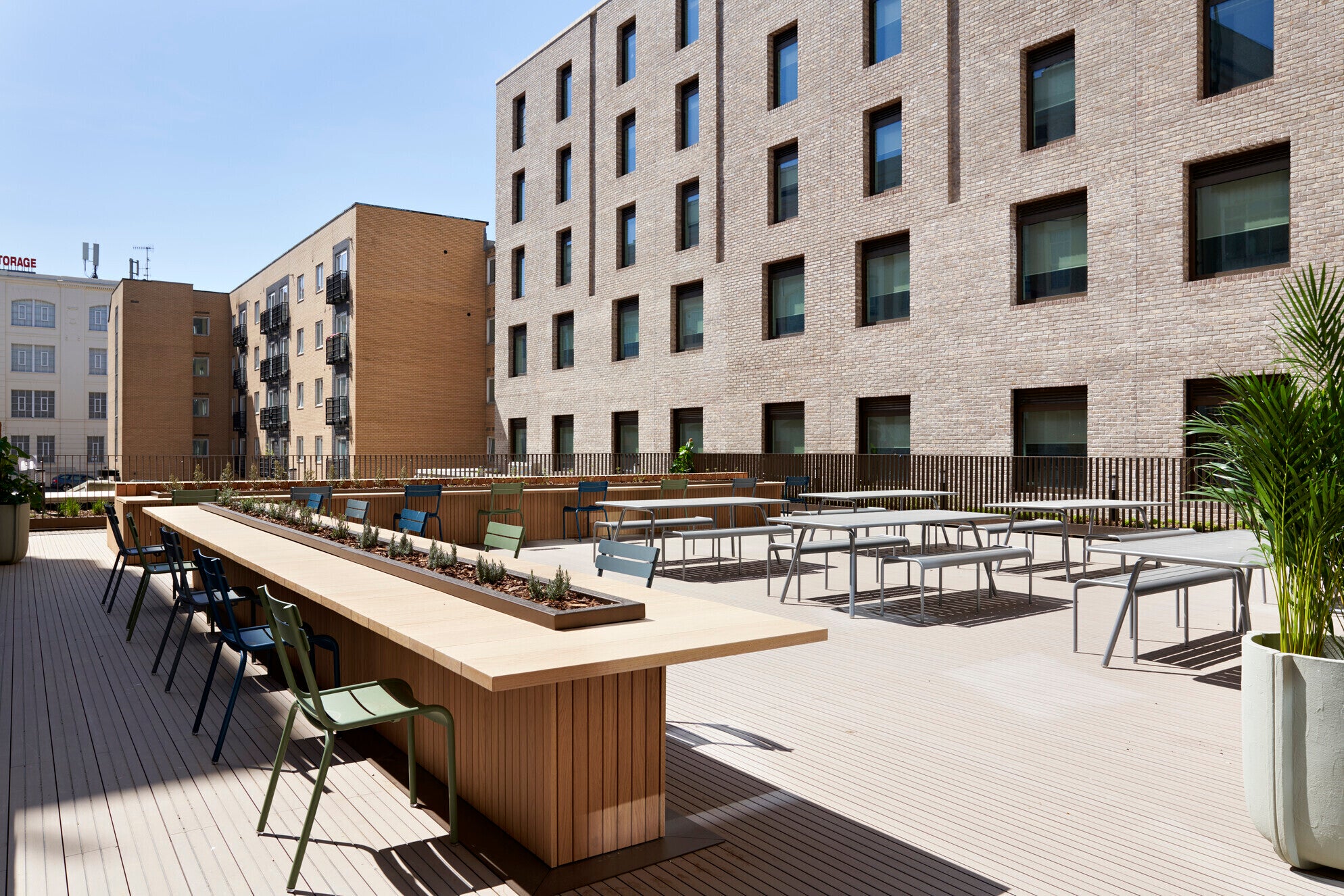
Student Castle is renowned for its exceptional student accommodation facilities, which cater to the genuine needs of students. Their properties feature functional indoor spaces for academic success and inviting outdoor areas for a balanced lifestyle. Many Student Castle properties have spacious terraces, expansive courtyards, and welcoming grounds that offer respite from fast-paced student life. This project provided an opportunity to enhance these spaces further, aligning with national sustainability strategies and supporting ESG objectives.
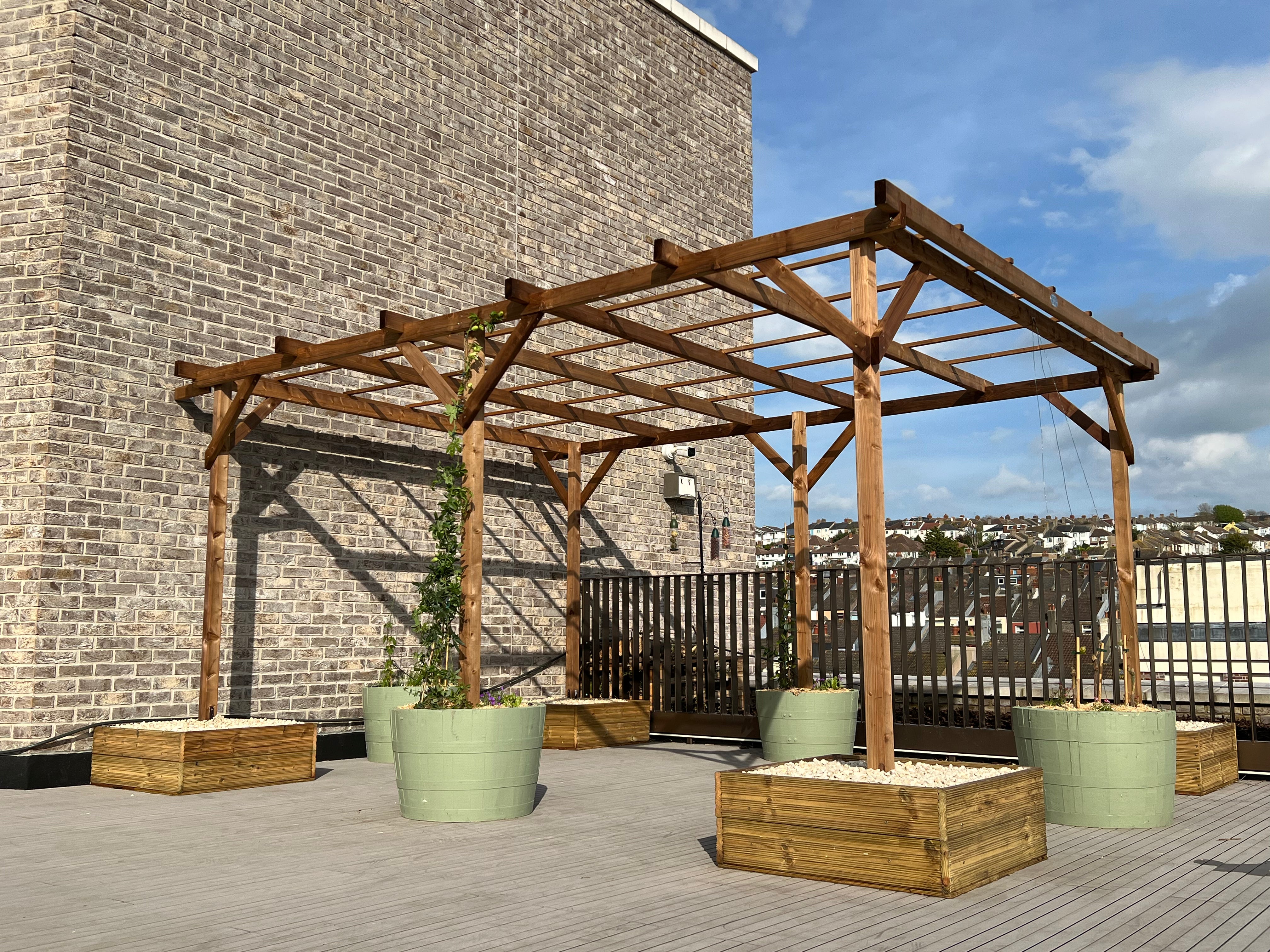
The Brighton location posed a unique challenge with its three terraces located on different floors of a modern building. Each terrace had specific goals and obstacles, including the 6th-floor terrace facing strong coastal winds. The installation required close collaboration with structural engineers, crane operators, and a specialised team to ensure safety and precision. Navigating building regulations and transporting a 5-tonne composting system and 50 cubic metres of woodchip to elevated heights were significant logistical challenges.
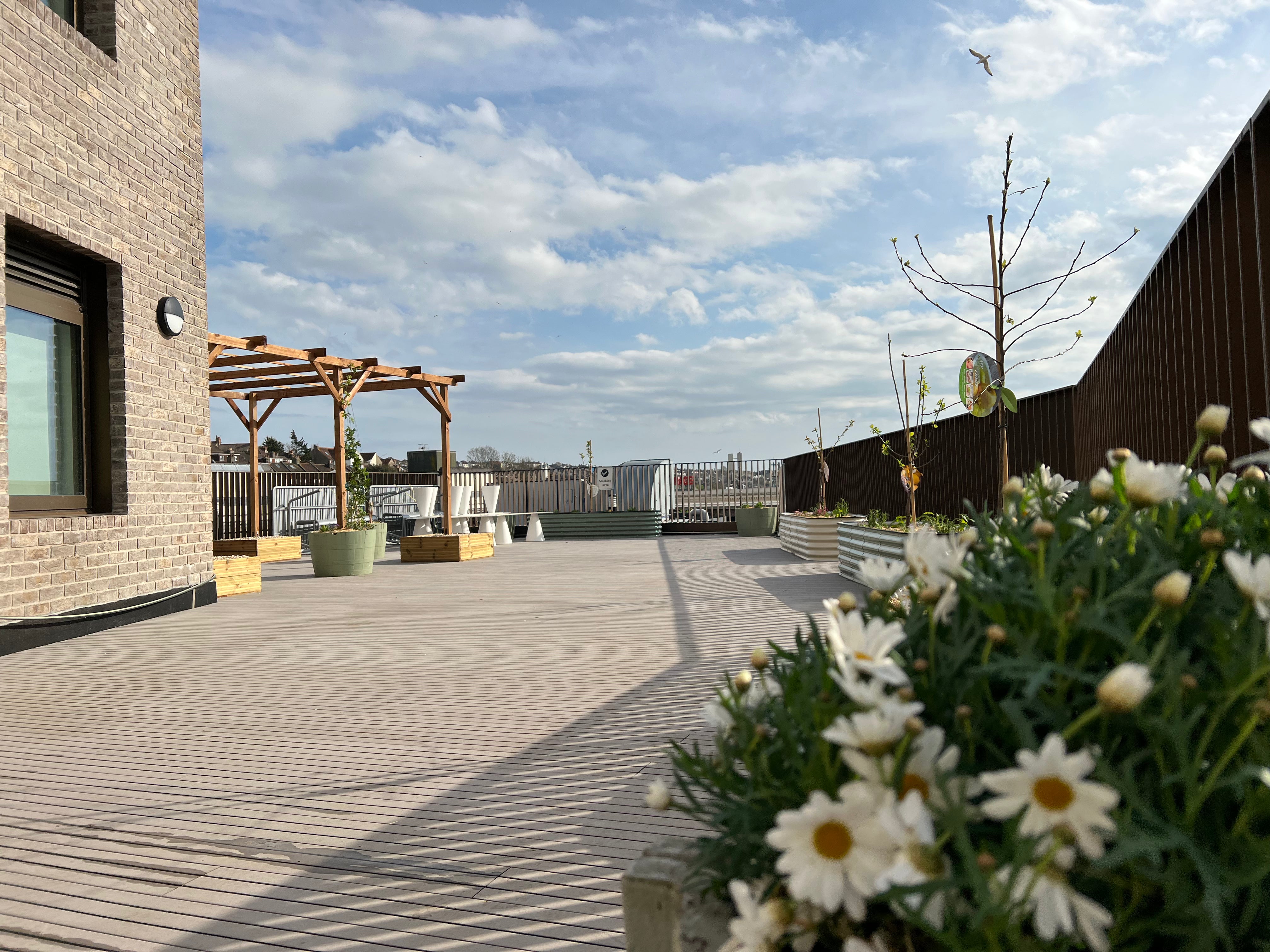
We prioritised safety and functionality in our planning and operations. Key steps included:
The rooftop permaculture gardens at Student Castle, Brighton, have yielded remarkable outcomes, demonstrating the project's success in enhancing both student well-being and environmental sustainability.
This project stands out for several compelling reasons, reflecting our core values and commitment to sustainability, innovation, and well-being.
